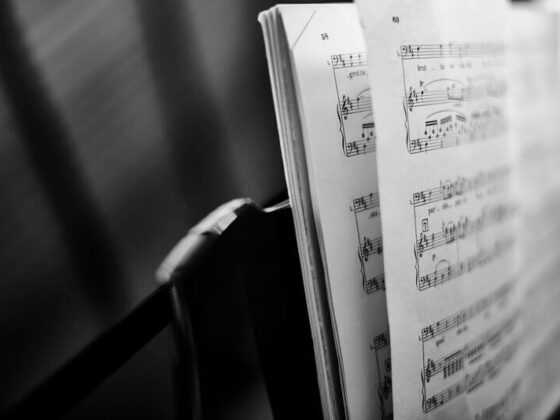Have you ever felt like you want to practice and learn new repertoire on your instrument but have no idea which songs to choose?
If you are self-teaching, I know that it might get quite overwhelming trying to manage all the aspects of your music education on your own.
Self-teaching requires you to choose your practice songs by yourself, and there are some important points you should consider while doing it. You don’t want to end up getting exhausted by the pieces you are learning or showing no progress. As a self-teaching pianist or any instrumentalist, you should make sure that the songs you are practicing are the right ones for your level, technical skills, and musical tastes.
When you have a real instructor, he or she might take care of your repertoire by assigning the necessary pieces every week. However, you might still want to learn some extra pieces other than what your teacher already assigns you.
Below I listed 5 essential tips that will guide you through your selection process. By following these simple tips, you will be able to pick the best songs that will both improve your playing and keep you motivated!
Let’s get started.
Define Your Genre
I think this is one of the most important points in this list though most teachers and students don’t seem to grasp its significance. The genre in which you want to improve should be your main guide for taking any action on your musical journey.
When you start to take piano lessons with an instructor, for example, most of the time you will be forced to play classical repertoire. I think it is a huge mistake in traditional instrumental education since not everyone is interested in classical music.
Think about your musical tastes. What types of music would you like to play on your instrument? Jazz, classical, rock? You don’t have to struggle with the difficult classical pieces if playing rock piano is what makes you happy, for example.
Check out these blog posts to see my top song recommendations for each genre:
- 6 Easy Piano Rock Songs For Beginners
- 11 Easy Classical Piano Songs For Beginners
- 18 Greatest Piano Soundtracks Of All Time
Deciding on this simple point will make things a lot easier for you while choosing your practice songs. If you want to play mainly jazz as a guitarist, you can start to create a list of jazz songs that you love. You can then filter them based on their difficulty levels, and choose the most suitable ones for your level.
However, this is not to say that you should limit yourself only to one single genre. You can of course play pieces from various genres especially if you are a beginner. My advice is to play the genres you enjoy and discover them. Never feel obliged to play the pieces you don’t like just because everyone says that you should play them to become a better pianist or violinist.
Consider Your Level
When picking your pieces, you should also think about your current level of playing. Are you a beginner, intermediate, or advanced player?
Sometimes you fall in love with a piece and want to learn it so bad that you don’t think of anything else but playing it. However, I suggest that you take a moment before doing it since it can make you harm if the piece is far above your level.
A very difficult piece will require a lot of advanced techniques. If you try to play them as a beginner, you will end up getting frustrated and exhausted. If you still push yourself to learn it, you might end up learning the incorrect techniques. Plus, you can even injure your hands.
If you are a piano player and don’t know what level you are, I recommend checking out this video by Pianote:
However, you can still play the difficult songs you love by learning their easy versions. I really love this method because it allows me to have the joy of playing very difficult pieces without getting exhausted. Virtual Sheet Music has a lot of high-quality easy arrangements of many songs from different genres, so I recommend checking it out.
Challenge Yourself
Now that you know you should have a genre that you want to focus on and consider your level while choosing songs, it’s time to add a little bit of challenge to your practices.
Mostly, you should stick to your current level and not play the songs that are too advanced for you. However, it also necessary to add some pieces that are one step beyond your level from time to time to have better progress and keep your excitement.
For example, if you’ve been playing the piano for a year, you can now include a few early-intermediate songs to your practices. This will motivate you to learn more pieces and achieve higher levels with your instrument.
You can also include pieces from different genres in your repertoire. If you are playing mostly rock, you can pick a few classical songs sometimes. Different genres require different technical skills and knowledge, which is necessary to become a versatile player.

Overall, challenging yourself as an instrument player is one of the greatest ways to keep yourself motivated and inspired.
Make Sure The Songs Have Sheet Music or Tutorial
Even if the songs you choose satisfy the first 3 points, you should also make sure that there is actually material to learn those songs. The materials can be sheet music, tutorials, or anything that will guide you in learning which notes or chords you need to play, and how to play them with correct fingerings and techniques.
If you are a piano player, you might find this post useful:
For getting the best sheet music, I recommend checking out Virtual Sheet Music or Sheet Music Plus. Virtual Sheet Music has one of the best digital sheet music libraries on the internet. Sheet Music Plus is also amazing for getting high-quality sheet music books and collections.
You can learn the songs by ear as well. However, I don’t recommend doing this if you want to learn classical music. Classical music requires playing correct notes with correct fingerings and accompaniments as the original. So, it is best to follow sheet music or tutorials to learn everything correctly.
Aim For Specific Techniques
You might be struggling with a specific technique in a song. You might be practicing a piece and realize that you can’t play the arpeggio passages as you should. This is great! Because now you know what you will focus on when choosing your next practice song.
If you find yourself struggling with arpeggio passages, you can choose the pieces that feature such passages to get better at playing arpeggios.
This method works great because it allows you to overcome your technical difficulties more quickly and efficiently. My advice for practicing challenging parts is to always practice them slowly until you are able to play them with ease.
As always, while choosing such songs, don’t forget the other points on this list. For example, the piece that features the technical challenge you want to overcome should be also around your level and have the materials to learn!
Pick Songs That You Love
While this one is quite obvious, I still wanted to include it because I see many people who miss this simple yet important point. It doesn’t make any sense to play your instrument if you don’t play the songs that you enjoy.
You can’t perform a piece with passion and excitement if you don’t like it. Many people think that there are must-play songs and if they don’t learn them, they won’t be good at their instrument.
It is not true, and this mindset is what will exhaust you and take the motivation away.
Always choose the songs that you enjoy playing and listening to. You will be more willing to practice when you do so. Also, playing the songs you love will improve your artistic expression and performance, which is a significant aspect of playing any instrument.
Conclusion
These were the 6 essential tips for picking the best practice songs for your instrument.
I hope these tips will help you choose the right songs for your practices.
Which tip did you like most?
Which tip did you already know?
Let me know in the comments section below!











